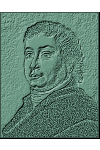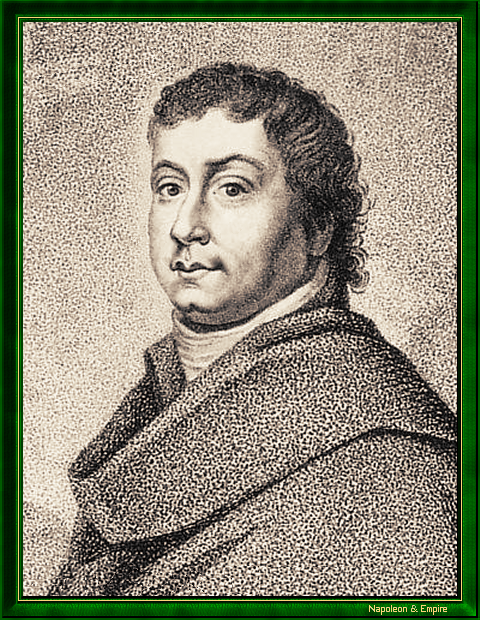Ferdinando Paër

Ferdinando Paër was born in Parma on June 1, 1771, to a musician father who gave him his first music lessons.
He went on to study at the Naples Conservatory.
His first work, in French, Orphée et Eurydice, was performed in Parma in 1791. That same year, he became Kapellmeister in Venice, where he performed his first Italian opera, Circe, in 1792. Over the next eight years, Paër produced no less than twenty-three operas, which were performed throughout Italy, establishing his reputation as a composer.
He left the peninsula in 1798 for Vienna, where he immersed himself in the music of Wolfgang Amadeus Mozart. He also gave music lessons to the future Empress Marie-Louise of Austria. His career continued in Saxony, where the Elector made him his Kapellmeister from 1802 to 1806.
That year (or the next), Napoleon attended a performance of Paër's Achille in Dresden, which he greatly appreciated. He immediately hired the composer. Paër soon became director of music for the Court concerts and theater.
In 1809, however, it was for a private theater in Parma that he composed his most famous work, Agnese, about madness with a realism that Stendhal found too crude. However, the genre continued to flourish, with works by Vincenzo Bellini and Gaetano Donizetti.
In 1810, Ferdinando Paër signed the Wedding March, which was performed at the wedding of Napoleon and Marie-Louise of Austria. He was then appointed Kapellmeister to the Empress.
In 1812, he became musical director of Italian opera at the Théâtre de l'Impératrice, replacing Gaspare Spontini. He retained this position (albeit with a different title) after the fall of the Empire, and intermittently until 1827. He soon added the titles of Compositeur de la chambre du roi and Directeur de l'orchestre particulier du Duc d'Orléans. After the July Revolution, Louis-Philippe gave him the directorship of his chapel.
Paër was also a member of the Académie des Beaux-Arts (1831) and a professor at the Conservatoire (1834-1837), before dying in Paris on May 3, 1839.
"Ferdinando Paër". Engraving of the 19th century

In 1824, Paër had the opportunity to give composition lessons to the young Franz Liszt.